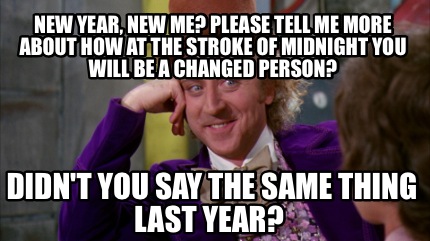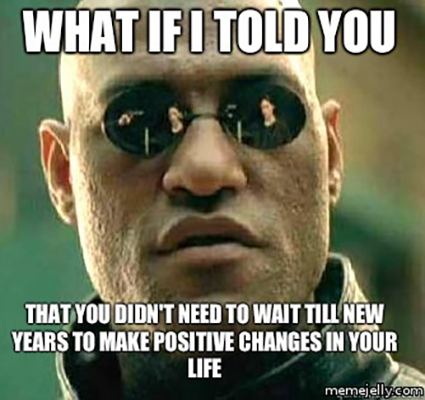I recently connected with someone on LinkedIn who is a Life Coach for High-Performing Remote Workers. As part of his getting to know me messages, he asked if I listened to any good podcasts lately. That got me thinking about the regular influence on my thinking of the podcasts I listen to. The more I thought about it, the better the idea to turn it into an article listing what I am listening to and why.

Doggcatcher for Android 
Downcast for iOS
A little background on my interest in podcasts:
I have listened to podcasts for almost 12 years. Up until the start of this year, I always had a long commute. Whether a 200+ mile daily round trip to Lafayette, Louisiana or a 1,000+ mile round trip driving to Houston, Tx every other week, I had a lot of highway time on my hands. Podcasts allowed me to be entertained and informed, in addition to allowing me to utilize “dead” time for learning.
Podcasts I Listen To
| Podcast | Link | Category |
| Bigger Pockets Podcast | https://www.biggerpockets.com/podcast | Real Estate Investing |
| Tim Ferris Show | https://tim.blog/podcast/ | High Performance |
| DH Unplugged | https://www.dhunplugged.com/category/podcasts/ | Stock Markets |
| Rich Dad Radio | http://www.richdad.com/radio | Current Affairs/Rich Dad Theory |
| James Altucher Show | https://jamesaltucher.com/podcasts/ | High Performance |
| Akimbo | https://www.akimbo.me/ | Personal, Professional Improvement |
| Private Lender Podcast | http://privatelenderpodcast.com/ | Education on the Subject of Private Lending for Real Estate |
| Bigger Pockets Money Show | https://www.biggerpockets.com/moneyshow | F.I.R.E.: Financial Independence, Retire Early |
| Freakonomics Radio | http://freakonomics.com/archive/ | Various Topics |
Bigger Pockets Podcast
The Bigger Pockets Podcast helped me to learn a great deal about real estate investing. I have the Bigger Pockets website listed as a resource on this site, but the podcast is an additional tool to learn about REI. Each week, the podcast interviews guests, most real estate investors, sometimes famous authors who provide useful tips for investing, business, and personal improvement, and every once in a while, they will do an occasional webinar-type podcast to educate listeners on a particular topic.
I especially like the investor interviews to get tips, tricks, and strategies that may help me in our REI business.
The Tim Ferriss Show
Tim Ferriss, author of numerous books on increasing performance (4-hour Workweek, Tools of Titans, Tribe of Mentors, etc.), conducts long-form interviews with high-performers across various domains. Even when interviewing guests who have been on EVERY medium you can think of, you always learn things no one else has ever asked. Tim listens to guests’ answers and responds to the answers with deeper questions. He also does extensive research on guests and does not rely on canned press release questions.
I generally like to listen to his interviews because the people he does interview are “Doing It”. They don’t have a theory, they are not selling snake oil, they have done/do whatever they are recommending to increase performance.
DH Unplugged
DH Unplugged is an unscripted conversation about markets between investment advisor Andrew Horowitz and pundit John C. Dvorak.
I like DH Unplugged because they discuss what is going on in the markets and aren’t trying to sell you anything. In fact, they frequently point out how most “Money” shows on cable news channels are always “BUY, BUY, BUY” no matter what is going on.
Rich Dad Radio
Rich Dad Radio is an interview podcast featuring Robert Kyosaki, author of Rich Dad, Poor Dad, and his wife, Kim Kiyosaki, author of Rich Woman. The interviews are mainly related to money and economics, (in a broad way), and generally promote Rich Dad, Poor Dad Principles.
In addition to interesting information from guests, it’s fun to listen to Robert interpret the guests’ statements into Rich Dad principles.
James Altucher Show
The James Altucher Show is another long-form interview podcast, similar to the Tim Ferriss Show, that delves into what makes high performers “tick”. Where Ferriss delves into tools, self-talk, and motivation, Altucher focuses a little more on the path to peak performance, teasing out the development of “micro-skills”. Altucher’s overarching thesis on micro-skills is that high performers build up a toolbox of them that help them to succeed. Like Ferriss, Altucher goes far deeper in his interviews than you normally see in regular media.
Because of the depth of detail and wide range of topics covered in each interview, I really enjoy Altucher’s show.
Akimbo
Akimbo is a podcast put out by author and marketing guru Seth Godin. This podcast is a combination of self help and career advice for entrepreneurs. You don’t have to be an entrepreneur to benefit from the topics & advice given, either.
I enjoy the perspectives, suggestions, and tips provided by Godin in this show. I don’t necessarily subscribe to all of his philosophies, but that is OK. It is good to hear different perspectives from your own to allow a balanced understanding of the world.
The Private Lender Podcast
The Private Lender Podcast is a combination of interviews, case histories, and education with regards to the utilization of private lending in real estate investing.
I like learning about the details of the non-financial industry financing.
I actually met Keith Baker, the host, and have become friends with him. He’s a cool and funny guy. Oh, and he LOVES the band Rush!
Bigger Pockets Money Show
As the name indicates, BPMS is another podcast from the group at Bigger Pockets, focusing on F.I.R.E. (Financial Independence, Retire Early). The podcast is in an interview format, covering guests’ stories, tips, and tricks for becoming financially independent.
I like listening to the BPMS to better plan my own “retirement”. It has also led me to resources that allowed me to recognize that I could retire right now and be comfortable from a financial perspective.
I hope this provides you with some insight into resources to use for personal and financial improvement in your life!
And, as always, let me know what you think in the comments. Ask questions, tell your story.
If you like my posts, please share them with others and subscribe to this blog.







